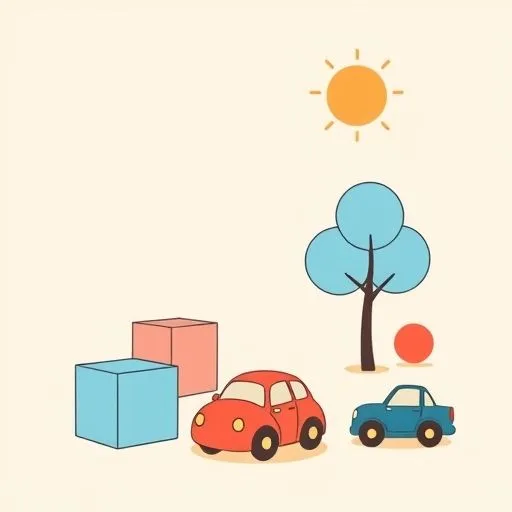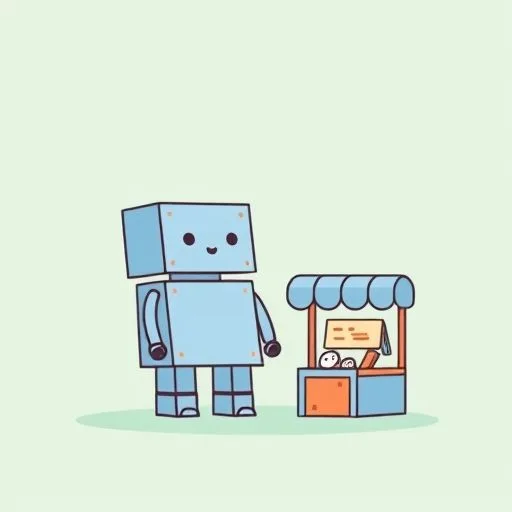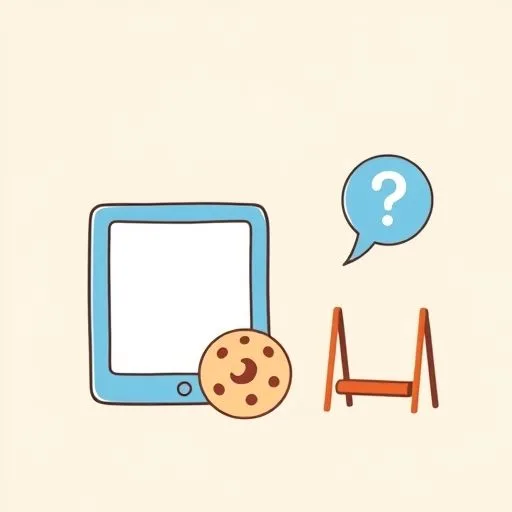
Hey neighbor! You know those overcast mornings here—when the sky’s the same soft gray as your little one’s favorite hoodie, and you’re walking to school wondering, ‘Will robots steal my kid’s future?’ Well, I had that exact thought today, coffee steaming in my hand, listening to the news between giggles about why clouds look like squished teddies. Turns out, Fed Chair Jerome Powell just dropped some truth bombs about the AI job market that made me want to shout from the playground: AI isn’t the villain we’re painting it to be. Not yet, anyway. Turns out, it was people all along, not processors. And that, my friend, is the most hopeful parenting news I’ve heard all year. Let me tell you why this changes everything for raising kids in Korea today.
Why Isn’t AI the Real Job Killer? (Hint: It’s Human Factors)

You’ve felt it, right? That tightness in your chest when headlines scream about AI wiping out jobs. I had it too—especially watching my daughter, still small enough to believe in fairy tales but old enough to ask why Siri ‘talks funny.’ Then Powell’s comments hit me like sunshine breaking through this overcast sky: ‘AI’s not the main driver of tougher job growth.’ Boom! Turns out, it was people all along, not processors. Lower immigration. Fewer folks joining the labor force. It’s not Skynet taking over—it’s about empty seats at the table.
Think of it like planning a family trip—something my data-loving brain loves comparing to parenting. When you book flights, you don’t panic about turbulence mid-planning, right? You focus on who’s actually in your group. If Grandma can’t come (labor force drop) or extra cousins cancel last minute (immigration slowdown), the trip adjusts—but the adventure still happens! Powell’s saying the job market’s doing the same: recalibrating seats, not crashing the plane.
Job markets aren’t collapsing—they’re shifting seats, slowly. And slow means time.
We tend to fixate on exams and hagwons, picturing AI as some exam-crushing monster. But this? It’s permission to exhale. Time for us to raise kids who’ll thrive no matter what tools exist. Remember that moment when your toddler figured out how to blend kimchi pancakes with maple syrup? Chaos, but creative genius! That’s our kids’ superpower—adapting. Not memorizing.
How Do Fewer Workers Help Our Kids’ Creativity?

Powell mentioned how lower immigration and workforce participation are actually softening the blow. It felt weirdly familiar—like our neighborhood playground on a quiet Tuesday. Fewer kids? Less chaos. More room for creativity. That’s not cold economics—it’s parenting gold.
Speaking of recalibrations, I noticed that same shift in my daughter’s classroom this week—Imagine last week: My daughter’s kindergarten class lost two friends to overseas moves. At first, we worried—would she feel lonely? But then something magic happened. Teachers had bandwidth to turn science time into impromptu bug hunts. Kids built towering block cities instead of rushing through play. Why? Fewer bodies = space for deeper connections. That’s Powell’s world in action—when the labor ‘classroom’ has breathing room, innovation gets oxygen.
It reshapes how I see her future job market. Instead of fearing AI taking jobs, I’m thinking: What if today’s ‘slower growth’ is secretly giving her runway to develop what robots never will? Like how she’ll spend 20 minutes building a Lego robot that ‘hates broccoli’—then run outside to test if squirrels agree. That’s human spark. The Fed’s talking about structural shifts, but we’re raising the next generation of structural innovators. No spreadsheet can measure the hope in that.
How to Future-Proof Kids with Play, Not Panic

So if AI isn’t the immediate threat, what should we prioritize? Here’s my Korean-Canadian ‘jjang’ moment: Job markets change, but childhood wonder doesn’t expire. Yesterday, my daughter asked why robots can’t eat tteokbokki. Instead of lecturing about AI limitations, we built a ‘robot chef’ from cardboard boxes and gave it ‘laser eyes’ (glow sticks). Then? We walked to the local market—together—to buy real tteokbokki. Screen time: 20 minutes. Real-world connection: priceless.
This is where Powell’s news feels like liberation. Since AI disruption’s gradual, we’ve got time to nurture irreplaceable skills: creativity sparked by playground dramas, empathy from sharing lunchboxes, grit from climbing that wobbly jungle gym. No hagwon needed. Just presence. Remember those family camping trips we took before she was born? You don’t prep tents for earthquakes—you build them sturdy now for whatever weather comes. Same with parenting.
I’ve stopped obsessing over ‘AI-proof careers’ for her. Instead, we turn news into play: Heard about new tech? Act it out with stuffed animals. Worried about job markets? Pretend the sandbox is the economy—and yes, sometimes trucks ‘lay off’ rocks (but always find new jobs moving sand). It’s not denial—it’s armor-plated hope. Because when she’s 20, they’ll need humans who blend tech with heart. And that’s born here, in messy living rooms and muddy playgrounds.
What Slow Change Means for Raising Calm Kids

Let’s get real—Korea’s job pressure makes even our morning train ride feels packed. But Powell’s revealing something radical: Change isn’t a tsunami. It’s a slow tide. That means we can parent from abundance, not anxiety.
Picture this: As moms and dads, we’re so busy preparing kids for the job market of 2040 that we forget today is the training ground. But if AI isn’t stealing jobs next year? We’ve got grace. Time to say ‘yes’ to building pillow forts instead of flashcards. To let them fail at baking cookies (while giggling about ‘algorithm errors’). To teach that kindness outlasts any AI upgrade.
The robot takeover’s late — now’s our chance to let kids be kids.
I’m betting on slow change. Not because the Fed says so—but because I see it in my daughter’s eyes. When she codes her little stories on the tablet (20 minutes daily, max!), then races outside to reenact them with friends? That’s the future job market. Human. Messy. Glorious. So next time job market worries creep in, whisper: ‘The robot takeover’s late.’ Then grab your hoodie, head to the playground, and ask your kid what they think robots should eat for breakfast. Trust me—your soul will thank you. So, what breakfast should your own robot pick tomorrow?
Source: Fed Chair Jerome Powell says that AI isn’t the main source of labor market woes — here’s what is, The Street, 2025-09-18
